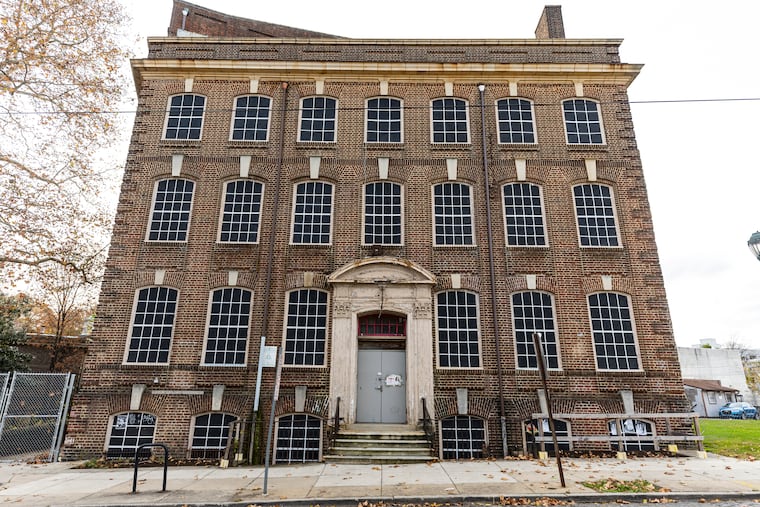Northwest Philadelphia developer seeks court’s permission to stabilize old Germantown YWCA
Developer Ken Weinstein is trying to take control of the long-derelict Germantown YWCA, which Councilmember Cindy Bass has long promised would be redeveloped — with no results.

Northwest Philadelphia developer Ken Weinstein is seeking permission in court to fix the facade of the old Germantown YWCA, a long-neglected city-owned property.
The brick four-story edifice, which dates to 1915, has sat empty for years. In early 2017 it looked like there would finally be a new purpose given to the building, when Ohio-based developer KBK Enterprises was selected to turn it into a mixed-use apartment building.
Since then concern has mounted about the future of the building as KBK failed to make substantial progress.
“It’s really just a result of the community being dissatisfied with the pace that KBK is working at,” said Weinstein, explaining his attempt to become the property’s conservator. “[We] just are not willing to wait any longer. It’s been over eight years now.”
A call seeking comment from KBK was not returned.
In October, Weinstein filed an Act 135 petition against the property, which is owned by the Philadelphia Redevelopment Authority. This 2008 law was created to help fight absentee landlords and real estate speculators who squat on vacant properties for years to the determent of their neighbors.
The Redevelopment Authority declined to comment on pending litigation.
Act 135 allows interested actors, referred to as “conservators” in the legislation, to seek temporary possession of a property if it has been unoccupied and neglected for over a year. Act 135 petitions are usually targeted at privately held property, although there have been a handful of successful efforts to remediate publicly owned buildings this way.
“I am not interested in being the developer,” Weinstein said. “I’m just asking the courts to make me the conservator so that we can put it into somebody’s hands who can do something productive with it.”
A troubled history
The building, located at 5820-24 Germantown Ave., is a historic landmark in part because of its place in the racial integration of Germantown. In the early 20th century, YWCA facilities were segregated for white and Black residents. When the Black-only operation closed, the building, then a white-only location, invited Black residents to join as well.
It was in active use through the 1990s and then was caught up in the catastrophic fallout from the meltdown of Germantown Settlement, a politically connected nonprofit developer in the neighborhood that collapsed ignominiously and left dozens of vacant and ill-kept buildings behind.
The property is now owned by the city’s Redevelopment Authority, but due to a tradition of councilmanic prerogative in which district City Council members are given almost total authority over land use in their territory, Councilmember Cindy Bass essentially controls the building’s fate. She selected KBK, which is a political ally and campaign donor, for the project.
KBK’s lack of progress has stirred controversy in the neighborhood, as the company’s 2019 deadline for completion of the redevelopment has long come and gone. Two years ago, the Redevelopment Authority ended its contract with KBK but could not give the bid to a new developer without Bass’ cooperation, according to reporting by WHYY News.
Tensions over the project culminated in a contentious community meeting in January 2022, when critics of KBK said they were threatened by supporters of the project. Since then the property has been in limbo, although Bass has stuck by KBK, which recently unveiled an updated plan for the site. The Redevelopment Authority confirmed the site is still reserved for the developer.
Bass said she hadn’t had a chance to read Weinstein’s Act 135 petition yet, but she was astounded by his action.
“This particular property has a plan,” she said. “It’s a very well-detailed plan. It was laid out in a public meeting about a month ago. So it’s very surprising he would choose this moment to decide to engage in this filing.”
At the October neighborhood meeting, according to the WHYY account, KBK presented a revised project with 45 apartments that would rent for 60% of area median income or $55,000 a year for a two-person household.
But some attendees were not satisfied that the outcome would be any different this time.
“It’s a building that has such a precious history of integration for Germantown, but it’s been neglected for 20 years,” said Yvonne Haskins, a local activist who has been active in trying to get the Redevelopment Authority to move on from KBK. “It’s nothing personal against KBK or anybody supporting them. It’s all about what is the best for the building.”
What Weinstein wants
A hearing date is scheduled for the Court of Common Pleas on Dec. 22.
Weinstein owns all the neighboring properties north of the building, from the YWCA to Rittenhouse Street. But he said he does not want the Germantown YWCA for himself. He wants to be made the conservator so that he can properly seal and care for the property before it is turned over to a company that can redevelop it more quickly. His petition shows a blight remediation plan for the exterior of the building that would cost $130,500.
Weinstein, who is white, said that he agrees with those, including Bass, who say the project should be redeveloped by a Black-owned company given that Germantown is a majority-Black neighborhood. But he said that there are many other options besides KBK, including the Philadelphia-based Mission First Housing Group.
In 2016, Mission First, in alliance with Weinstein and the local organization Center in the Park, submitted a competing bid that lost out to KBK. But Weinstein insists that this time he is not seeking to be personally involved.
“What’s most important is finding the right reuse for the building, but that being said, I would love to see it done by a person of color,” he said. “We have a lot of good choices in Philadelphia, with a lot of experience, who can make this happen.”